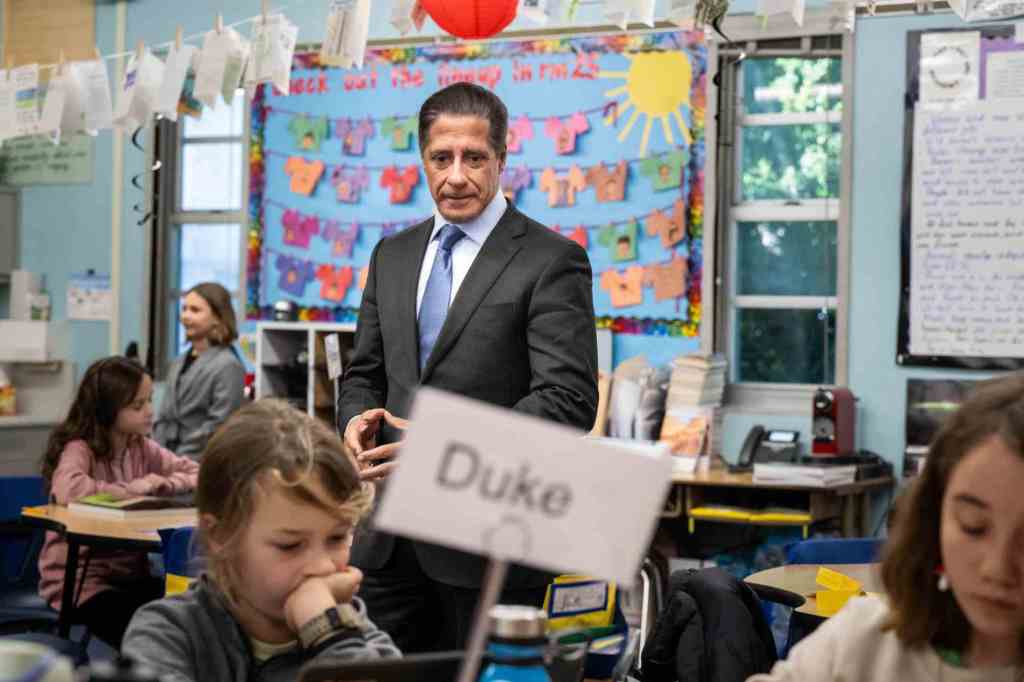
A new state mandate to teach ethnic studies in California’s public schools is producing some unusual results. A high school “Introduction to Ethnic Studies” class offered in the Los Angeles Unified School District includes a “Solidarity” unit with lessons on anti-colonial movements launched by contemporary “racialized communities.” The “Ethnic Studies: World Histories” class in the Santa Ana Unified School District contains a unit named “Connect and Conceptualize Decoloniality Regeneration and Social Justice.”
We are now five years into “social justice education,” a movement that arose in the wake of George Floyd’s 2020 murder at the hands of a Minneapolis police officer, and student outcomes reveal that inundating marginalized students with messages about their oppression and incapacity has been deeply harmful. Public schools should instead strive to provide all students with the rich liberal arts education from which the privileged have long benefited.
In the years leading up to 2020, “no excuses” urban charter schools combined a laser-like focus on academic achievement with a disciplined environment and highly proficient teachers. Together, they committed to doing whatever it took to ensure that their students succeeded.
The results were striking. A Stanford University study found that in New York City, students in no excuses schools operated by nonprofit charter management organizations were learning at a sharply accelerated rate, each year gaining the equivalent of an additional 110 days of learning in reading and 124 days in math over their district peers. Similarly, the Brookings Institution found that charter schools in Boston achieved some of the largest academic gains ever documented in educational research.
Compare that to the social justice education practiced at places like East Oakland’s Roses in Concrete Community School, where academics received scant attention. The school pursued a “counter-hegemonic,” “liberatory” approach that broke with “white settler colonial practices.” Roses in Concrete emphasized social and emotional learning, social justice, and “restorative practices.” Fifth-grade students made a video posted to YouTube in which they declared, “We as Warrior Scholars… must take a stand! We refuse to cooperate with or normalize a government administration that empowers, enables and emboldens the forces of fascism and white supremacy.”
In 2019, the state found that only 6 percent of the school’s students were proficient in math, compared to 40 percent statewide. In English language arts, 17 percent were proficient, compared to 51 percent statewide. That year, the Oakland Unified School District’s board voted to shutter Roses in Concrete. “Restorative work should also include these kids being able to master reading and writing and computing,” the board noted tartly.
We mock students when we claim to empower them while denying them the tools of influence – to reason, to analyze, and to express oneself persuasively in speech and writing.
Social justice education is leaving the very students it aims to help less educated, more vulnerable and more marginalized. Social justice isn’t achieved by creating social justice warriors; it is achieved by ensuring that all students have the literacy and numeracy skills they need to succeed.
In contrast, no excuses charter schools were making it clear that they could narrow and even reverse achievement gaps at scale. Nationwide, these “gap-closing” schools were adding around 50,000 students each year – the size of the San Francisco public school district.
The racial reckoning that followed George Floyd’s murder could have spurred on the transformation of public education sparked by urban charter schools. It could have lit a fire under school districts to accelerate instruction and urgently make up ground lost during the pandemic. Instead, it ended that transformation.
Social justice education holds that objectivity and urgency are symptoms of toxic white supremacy culture, truth is a phantasm, and liberal education is elitist and colonialist. Before teaching academics, its proponents urge, schools must address the trauma teachers and students experience from living in a white supremacist society. It is an inexhaustible excuse for failure.
At the mid-point of the decade, it is time to choose another path. We can equip all children with a rigorous and engaging liberal arts education that arouses curiosity, venerates knowledge, cultivates compassion, and upholds reason. We can return to creating a new generation of schools that lift achievement for all students and build a more equitable and just society.
Steven F. Wilson is the author of “The Lost Decade: Returning to the Fight for Better Schools in America” and a senior fellow at Pioneer Institute, a public policy-focused think tank.
Originally Published:



